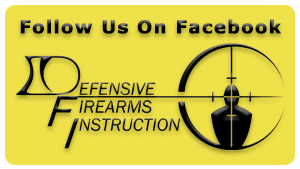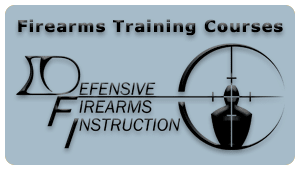Basic Life Support (BLS) Certification
The Basic Life Support (BLS) Certification course is designed to train healthcare professionals including nurses, physicians, EMS professionals, and other healthcare and public safety personnel to respond to breathing and cardiac emergencies in adults, children and infants.
At Defensive Firearms Instruction, we are proud to represent the American Red Cross (ARC) by providing up to date Basic Life Support (BLS) Certification courses for individuals and teams in a 4 1/2 hour classroom setting. You’ll receive science-based information that includes the latest protocols so you can deliver care to those in need and help improve patient outcomes.
The Basic Life Support (BLS) Certification course has been developed under the guidance of, and reviewed by, the American Red Cross Scientific Advisory Council – a panel of nationally recognized experts from a wide range of scientific, medical and academic disciplines – ensuring that the information provided meets or exceeds local, state and/or national standards.
The Basic Life Support (BLS) curriculum includes all standard scientific learning objectives necessary in professional resuscitation courses. Using scenario-based approaches, students develop their critical thinking, teamwork, and clinical decision-making skills, and work on reflection and debriefing, which serves to strengthen their overall learning and work experience.
Course Topics Include
- Rapid Assessment and Visual Survey
- CPR/AED for Adults, Children and Infants
- Obstructed Airways
- Opioid Overdoses
- Critical Thinking, Problem Solving, Communication and Teamwork
- The Emergency Medical Services System
- Legal Considerations
- Precautions
Basic Life Support (BLS) Certification cards are valid for two years from the date on your certificate.
If your American Red Cross BLS Certification is about to expire (or has expired and you’re within 30 days of its expiration), you can enroll in Basic Life Support (BLS) Re-certification (an abbreviated review course) and get re-certified for two more years. If your certification expired more than 30 days prior to your review course, you’ll need to complete the full BLS certification course in order to regain your certification.
What is the difference between BLS vs. First Aid?
- Basic Life Support (BLS) is the foundation of resuscitation training for healthcare professionals including nurses, physicians, EMS professionals, and other healthcare and public safety personnel. BLS program content includes single-and multiple-responder CPR (cardiopulmonary resuscitation) and AED (automatic external defibrillator) use, as well as how to care for a patient who has an obstructed airway (choking).
BLS vs. CPR: What is the difference?
- When lives are on the line, it is critical that healthcare and professional responder staff have the skills and confidence to act in the moments that matter. Red Cross Basic Life Support (BLS) is meant for healthcare professionals and first responders. This comprehensive, evidence-based curriculum goes beyond a cardiac focus, making the program unique and more robust. The Red Cross BLS course meet competency verification, education, credentialing and privileging requirements.
- CPR classes are the foundation of workplace safety training, giving immediate responders a mastery of lifesaving techniques and the confidence to act when moments matter, be the cardiac emergency be at home, at school or in their community.
Created with the latest information available, the Basic Life Support (BLS) Certification course allows you to learn life-saving techniques and can help prepare you for a career in the medical field, as a police officer or firefighter or another career where caring for others is part of the job.
What To Bring:
-Valid form of government issued Photo ID
-Notepad
-Pen



